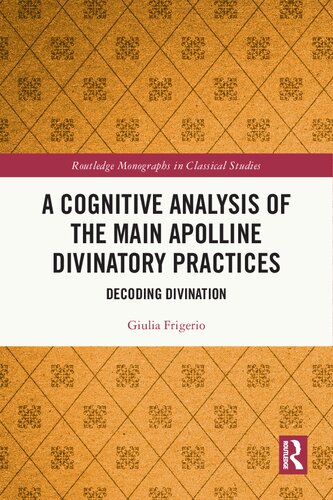

Most ebook files are in PDF format, so you can easily read them using various software such as Foxit Reader or directly on the Google Chrome browser.
Some ebook files are released by publishers in other formats such as .awz, .mobi, .epub, .fb2, etc. You may need to install specific software to read these formats on mobile/PC, such as Calibre.
Please read the tutorial at this link: https://ebookbell.com/faq
We offer FREE conversion to the popular formats you request; however, this may take some time. Therefore, right after payment, please email us, and we will try to provide the service as quickly as possible.
For some exceptional file formats or broken links (if any), please refrain from opening any disputes. Instead, email us first, and we will try to assist within a maximum of 6 hours.
EbookBell Team

4.4
22 reviewsThis volume takes an innovative interdisciplinary approach to investigating divination procedures at sanctuaries of Apollo in Classical and Hellenistic Greece, merging neuroscience, psychology, and behavioural studies with archaeology.
Through a deep analysis of primary sources and the historical and cultural context of these procedures, Frigerio reconstructs the precise schemata of knowledge and cognitive associations pertaining to ancient visitors of the Oracle, highlighting neural inputs they received inside their minds in these specific situations. The author engages with the archaeological record, studying the cognitive input that both seekers and prophets experienced from features of the outside world such as landscape, architecture, and temperature. This innovative methodology allows for a new understanding of divinatory practices and the formulation of new hypotheses. In addition, this study offers a powerful tool for decoding divination and engaging with the archaeological record in future research.
A Cognitive Analysis of the Main Apolline Divinatory Practices is a fascinating read for students and scholars working on divination and cognition in ancient Greek religion, as well as in religion in the Classical and Hellenistic periods more broadly.